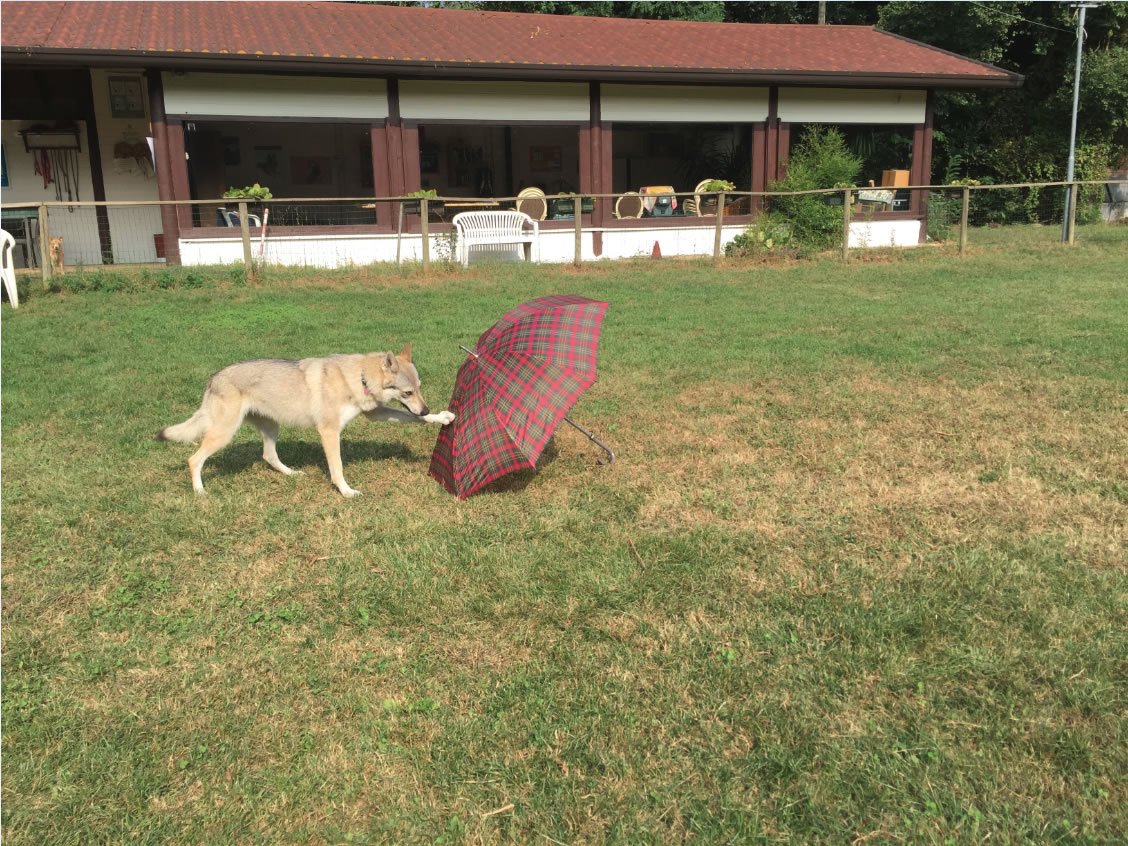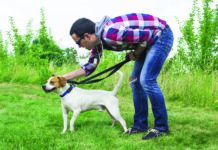

It has long been said that dogs don’t sequence memories in their minds the way people do, that in fact they don’t really have the kind of awareness of self that would allow them to recall a situation they were in at some point in the past. That is, the belief has been that they essentially live only in the present.
You might say that’s ridiculous, that of course dogs have memories or they wouldn’t be able to recall, say, how to perform a trick. But the argument there has been that their memories on that score have been kind of automatic — the way a toddler can walk any time he wants to once he has learned how but doesn’t recall the manner in which he learned to move about on his legs and doesn’t remember who helped him arrive at that ability and under what circumstances.
Now, through a deft experiment, researchers have been able to show that dogs do recall past episodes. That is, they have a much more sophisticated sense of themselves in time and can call up past experiences to inform their present thoughts and actions — and, who knows, maybe even anticipate the future, just as people do.
Researchers Claudia Fugazza, PhD, and her colleagues kos Pogny, PhD, and dm Miklsi, PhD, at
Etvs Lornd University in Budapest made the finding when they involved 17 dogs in a series of memory-testing steps. All the dogs were trained to “Do it!” upon seeing their owners perform various actions — going over to a traffic cone, for instance. (Successful imitations were rewarded with treats.)
Once the dogs had the imitating down, their trainers went on to do other actions — but instead of instructing the dogs to “Do it!” they told them to lie down. The dogs had never been taught to perform these particular actions (such as touching an umbrella), so actually engaging in them was not imprinted on their brains in any kind of functional way. All they now knew was that their owners’ doing something meant they should lie down.
This was all done in a very specific context: when the dogs were on a blue carpet, after an owner’s demonstration, they were always required to lie down. That context was important — why will become clear in a moment.
After the dogs saw the actions being performed by their people, they were led away from the area — either for one minute or one hour. They were then led back to the exact same blue carpet, expecting to be told to lie down since that was what they had already learned to do in this very context. But instead, their owners now told them to “Do it!” And they did. Well, after one minute, about 60 percent of them could do these actions that they had seen but never done, and after about one hour, 35 percent of them could. But the decline in ability after an hour’s time is pretty reasonable. People forget things over time, too.
The researchers, reporting in the journal Current Biology, point out that memories of personal events and specific episodes in one’s life are linked to an awareness of self, which of course is a very sophisticated way of being in the world, much different from simply living in the moment and working to satisfy purely primal instincts. To be able to encode information in the brain when it is not known that it may need to be remembered later is very complex neurobiology at work.
Investigations like this not only bolster the argument for what loving and attentive dog owners already know instinctively, which is that their dogs are “in there” and experiencing their lives with us in richer ways than many scientists have insisted in their writings. They also pave the way for learning more about human memory, including how memory is involved in the development of Alzheimer’s disease and other forms of cognitive decline that researchers are looking for ways to prevent or forestall.





